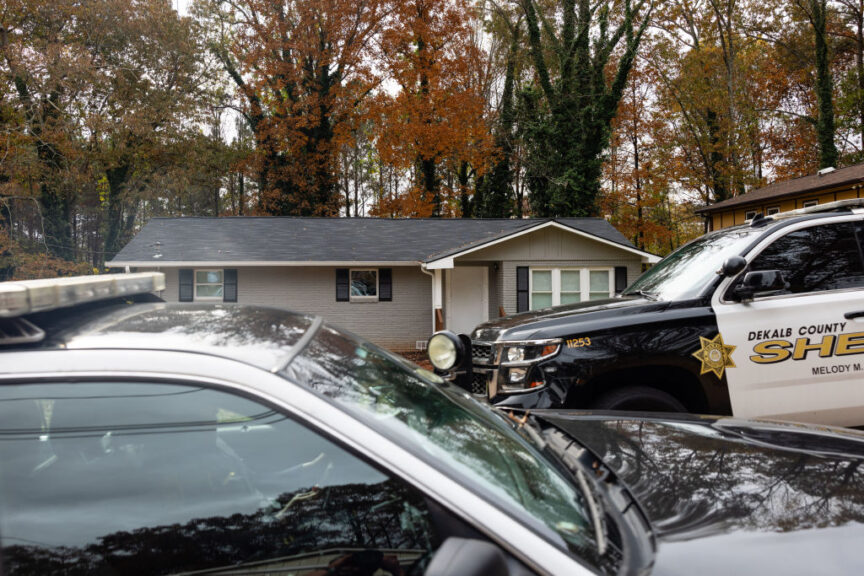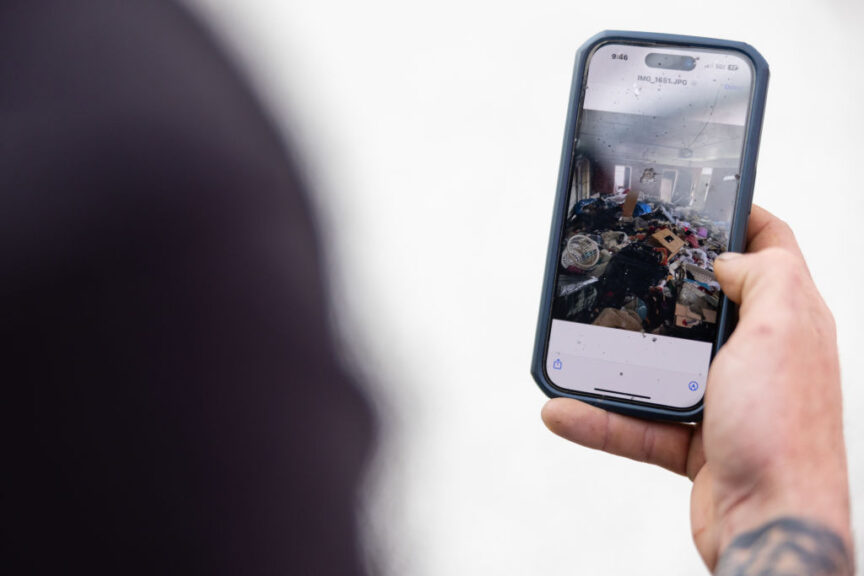An epidemic of squatters is plaguing American homeowners, and they are all the way fed up.
It seems like every day a new horror story emerges of squatters breaking into someone’s home, living in it for free, and leaving it trashed months later, all while homeowners watch helplessly from the sidelines.
While there’s no comprehensive data on exactly how many hundreds of squatters the country has, the problem is more dire in some areas than in others. A squatter is someone who trespasses and occupies a property with zero legal right to be there.
Georgia, Florida, and Texas have the metropolitan areas with the most homes taken over by squatters, according to a survey by the National Rental Home Council.
In Atlanta, about 1,200 homes have had squatters. In the Dallas-Fort Worth area, squatters have taken over about 475 homes. In the Orlando area, about 125 homes have seen squatters.

Elijah Nouvelage/Bloomberg via Getty Images
In most situations, police have their hands tied and are not able to kick squatters out immediately due to tenant protections. Meanwhile, housing courts usually have a huge backlog, leaving most homeowners with nothing to do but wait as they bleed cash and watch their homes get destroyed.
Recently though, some owners have gotten creative.
In New York City, two immigrants from Pakistan and Trinidad spent $1.3 million on three homes in Coney Island only to have them taken over by 10 squatters while the owners were out of town during the pandemic. Meanwhile, the city’s buildings department slapped them with $370,000 in fines over their houses’ deteriorating conditions even though the squatters were preventing repairs.
However, the two owners found a shortcut to ousting the illegal occupants when they discovered the squatters had illegally installed temporary walls to make more bedrooms. The NYPD was able to kick them out after this discovery.
A Seattle woman found a similar loophole to remove the squatters who took over her $4,000-a-month apartment.
Moving quickly before Washington state’s “squatter’s rights” kicked in at 30 days, she found the name of one of the squatters by going through the mail coming to her apartment. She discovered the person had a criminal charge for walking topless in downtown Seattle. This motivated the police to kick the group out, she said, and cops broke down the door and arrested the group for trespassing. One of the squatters was an OnlyFans creator and had installed a stripper pole in the living room.
In Hollywood Hills, a squatter took over a $4 million home and then rented out one of the rooms for $2000 to an unsuspecting woman. Both were ousted when the real estate agent called the police suspecting a robbery — the man fled, and the woman did not appear to know about squatters’ rights.
These nightmare stories have become increasingly common, especially since the economic turbulence sparked by the pandemic. Landlords struggled for months after local governments temporarily banned evictions during COVID. When those eviction moratoriums ended, homelessness and squatting incidents surged.
The squatter problem even has an international component — an illegal immigrant from Venezuela, Leonel Moreno was arrested on firearms charges after he mocked American homeowners on TikTok and encouraged migrants to squat in the homes of U.S. citizens.

Elijah Nouvelage/Bloomberg via Getty Images
As the problem worsens, there is a growing appetite for consequences.
Just this week, Georgia Governor Brian Kemp signed a bill criminalizing squatting. Under the new law, squatters can be arrested and will face a fine based on the property’s rent price.
Last month, Florida Governor Ron DeSantis signed a similar bill giving homeowners in the state “the ability to quickly and legally remove a squatter from a property,” he said.
New York, which has seen a wave of disturbing squatter stories especially in New York City, recently enacted new legislation to crack down on the problem as well. South Carolina has introduced a bill that would allow a property owner to immediately remove a squatter.
The momentum in favor of homeowners may come too late for some who have endured years of expensive legal battles to regain their properties, but the new laws may at least act as a deterrent to would-be future squatters.

Continue reading this exclusive article and join the conversation, plus watch free videos on DW+
Already a member?

.png)
.png)

